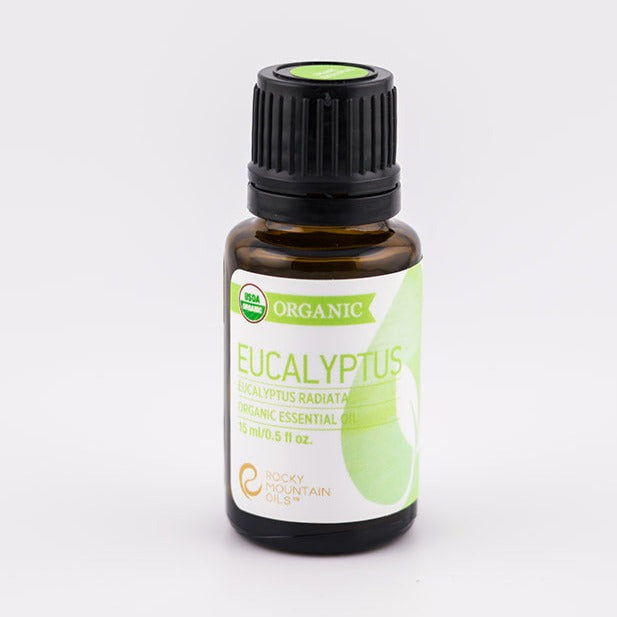What Essential Oils Do Cats Hate? Unlocking the Mystery
Essential Oils and Cats
Cats are known for their keen senses, especially their extraordinary sense of smell. This heightened sensitivity makes them particularly discerning about the aromas in their environment, including essential oils. Understanding the interaction between cats and essential oils is crucial for pet owners who love aromatherapy and want to ensure their feline companions' safety and comfort.
Understanding Cats' Sensory Experience
Cats possess an acute sense of smell, far superior to humans. This sensory capability plays a significant role in their perception of the world. Essential oils, with their potent aromas, can profoundly impact a cat's sensory experience, sometimes leading to discomfort or even health issues.
Overview of Essential Oils
Essential oils are concentrated plant extracts known for their solid scents and therapeutic properties. However, their intense aromas and chemical compositions can be overwhelming or harmful to cats, making it essential to understand which oils are disliked or dangerous.

Essential Oils: A Hidden Danger for Cats?
Many essential oils that benefit humans can pose a hidden danger to cats. Their concentrated nature and cats' sensitive respiratory systems can lead to adverse reactions. Recognizing which oils are safe and which should be avoided is crucial.
The Science Behind Cats' Aversion to Essential Oils
Cats have a unique physiology that makes them more sensitive to certain chemicals found in essential oils, particularly phenols and ketones, which can be toxic or cause adverse reactions. Their livers lack specific enzymes to break down these compounds effectively, leading to potential health risks, thus making it crucial to understand which essential oils are safe and how to use them responsibly around cats.
Potential Health Risks for Cats
Exposure to certain essential oils can be highly toxic to cats, potentially causing symptoms ranging from mild respiratory irritation to more severe health issues such as liver damage or neurological problems. It is crucial for cat owners to be aware of these risks and avoid using or diffusing oils that are known to be harmful to their feline friends, ensuring a safe and healthy environment for their pets. Recognizing the signs of essential oil toxicity in cats, including drooling, muscle tremors, difficulty walking, or lethargy, can lead to prompt and effective treatment, thereby preventing long-term health complications.
List of Essential Oils Cats Dislike
Some essential oils are more repellant to cats than others. Citrus-based oils like lemon and orange, as well as specific herbal and floral oils, are commonly disliked by cats. This section will provide a comprehensive list of such oils.
Citrus-Based Oils: Lemons, Oranges, and More
Citrus oils contain compounds like limonene and linalool that are highly concentrated and emit strong fragrances. These scents are often too overpowering for cats' sensitive olfactory systems, leading to discomfort or even aversion, making citrus oils an unfavorable choice for use around felines.
Herbal and Floral Oils: Lavender, Eucalyptus, etc.
In aromatherapy, essential oils like lavender and eucalyptus are commonly used for their soothing and medicinal properties. However, these and certain other oils can be harmful to cats due to their concentrated compounds and the cat's unique metabolism, which makes it difficult for them to process certain chemicals found in these oils. Cats have a distinct sensitivity to various compounds in essential oils, which can lead to toxicity and adverse reactions, making it important for cat owners to be cautious and avoid using these oils around them.
Why Do Cats Hate Certain Essential Oils?
Understanding the reasons behind cats' dislike of certain oils involves examining the chemical makeup of these oils and how they interact with cats' olfactory systems.
Chemical Compounds in Oils That Repel Cats
Essential oils contain chemical compounds like phenols, terpenes, ketones, and aldehydes, which can be harmful to cats when ingested or inhaled. These compounds may cause various health issues, including liver damage, skin irritations, and respiratory problems in cats, emphasizing the importance of keeping essential oils away from them.
Cats' Natural Instincts and Essential Oils
Cats' aversion to certain scents, including essential oils, is rooted in their natural instincts, such as their predatory nature and self-preservation instincts. These instincts help them avoid potential threats and maintain their territorial boundaries, and some essential oils may also be toxic to them, leading to aversion as a protective response.
Safe Usage of Essential Oils Around Cats
For cat owners who enjoy essential oils, it's crucial to understand how to use them safely around their pets. This section will provide guidelines and best practices for safe usage.
Precautions and Safe Practices
To use essential oils safely around cats, consult with a veterinarian for guidance on cat-friendly oils and proper dilution. Keep oils out of your cat's reach, ensure good ventilation, and monitor your cat's reactions to prevent any potential harm.
Alternative Aromatherapy for Cat Owners
For individuals seeking safer alternatives to essential oils in homes with cats, consider non-toxic options such as herb gardens and natural fragrance sprays using ingredients like rosewater or citrus. Prioritize the well-being of both humans and feline companions by avoiding potentially harmful essential oils and using these safe alternatives to maintain a pleasant living environment.

The Impact of Essential Oils on Cats' Behavior
Exposure to certain essential oils can lead to noticeable changes in a cat's behavior. This part will discuss the signs to watch for and the effects of different oils on feline behavior.
Behavioral Changes in Cats Exposed to Oils
To ensure the safety and well-being of both humans and cats in homes with feline companions, it's advisable to avoid essential oils that can be harmful to cats due to their sensitive physiology. Instead, opt for non-toxic alternatives like herb gardens and natural fragrance sprays made from safe ingredients like rosewater or citrus to maintain a pleasant living environment without risking your cat's health.
Stress and Anxiety in Cats Due to Oils
Cats can experience stress and anxiety from various scents, including unfamiliar odors, strong or offensive smells, and scents associated with negative experiences. It's important to be mindful of your cat's sensitivities to scents in order to maintain their calm and happiness, and seek professional advice if needed.
Essential Oils and Cat Health: A Vet's Perspective
We'll bring expert opinions from veterinarians on the interaction between cats and essential oils, providing professional insights and advice.
Professional Advice on Essential Oils and Cats
Veterinary professionals advise caution when using aromatherapy around cats due to their heightened sensitivity to certain essential oils, which can lead to toxicity. To minimize risks, consult a veterinarian for guidance on safe essential oil usage and always dilute oils, keep them out of reach, and closely monitor your cat for any adverse reactions.
Alternatives to Essential Oils for Cat Owners
This part will introduce various safe and cat-friendly options for cat owners looking for alternatives to essential oils.
Safe Aromatherapy Options for Homes with Cats
To create a cat-friendly aromatherapy environment, consider using non-toxic alternatives like catnip, valerian, lavender, chamomile, rosemary, and frankincense. Always dilute essential oils, use them sparingly, and monitor your cat's reaction to ensure their safety and well-being.
Non-Toxic Alternatives to Essential Oils
To ensure the safety of cats and their owners, it's important to avoid essential oils, which can be toxic to cats. Instead, consider using non-toxic alternatives like herbs, flowers, spices, and safe houseplants to create pleasant scents and maintain a safe environment.

What scent is bad for cats?
Certain scents are known to be unpleasant and potentially harmful to cats. Cats have a strong aversion to citrus scents, including those from essential oils like orange, lemon, and grapefruit, as well as the smell of vinegar and some spices like cinnamon and pepper.
Additionally, many cats dislike strong minty odors such as peppermint or eucalyptus. Exposure to these scents can cause discomfort or stress in cats, and it's advisable to avoid using them in areas where cats frequent or in products they may come into contact with, like cleaning solutions or air fresheners.
Will lemongrass oil keep cats away?
Lemongrass oil is known for its strong citrusy scent, which can act as a natural cat repellent for some cats. However, its effectiveness in keeping cats away may vary from cat to cat, as some felines may not be bothered by the scent.
While lemongrass oil is generally considered safe for cats when used in moderation and diluted properly, it's essential to ensure that your cat does not have any adverse reactions to it. If you intend to use lemongrass oil to deter cats, consult with a veterinarian for guidance on safe and appropriate application methods.
Is citronella safe for cats?
Citronella is generally considered safe for cats when used in moderation and following recommended guidelines. However, it's essential to be cautious with its use and ensure that cats do not ingest or come into direct contact with concentrated citronella oil, as it can potentially cause mild gastrointestinal upset or skin irritation in some cats.
It's advisable to dilute citronella oil significantly if using it around cats and to monitor their reactions closely. If you notice any adverse reactions or discomfort in your cat, discontinue use immediately and consult with a veterinarian.
FAQs: Common Questions About Cats and Essential Oils
Are any essential oils safe for cats?
In this section, we will address common concerns about which, if any, essential oils can be considered safe for cats, guiding pet owners.
How can I tell if my cat is negatively affected by essential oils?
Recognizing the signs of distress or discomfort in cats due to essential oil exposure is crucial. Here, we will outline what to look for and how to respond.
What should I do if my cat has been exposed to harmful essential oils?
This part offers practical advice for immediate steps if a cat has been exposed to potentially harmful essential oils, including when to seek veterinary care.
Can diffusing essential oils in my home harm my cat?
We'll explore the effects of diffusing essential oils in environments shared with cats, discussing potential risks and how to mitigate them.
Are there any natural scents that cats enjoy?
Not all scents are unwelcome to cats. This section will introduce natural scents that are typically well-received by felines.
How can I use essential oils responsibly around my cat?
For those who want to continue using essential oils while ensuring their cat's safety, this part will provide tips for responsible and safe usage.
Conclusion: Navigating the World of Cats and Oils
In conclusion, understanding and respecting a cat's sensory world is essential for any pet owner who enjoys using essential oils. By being informed about which oils are disliked or harmful to cats and following best practices for safe usage, we can ensure a harmonious living environment for our feline friends.





